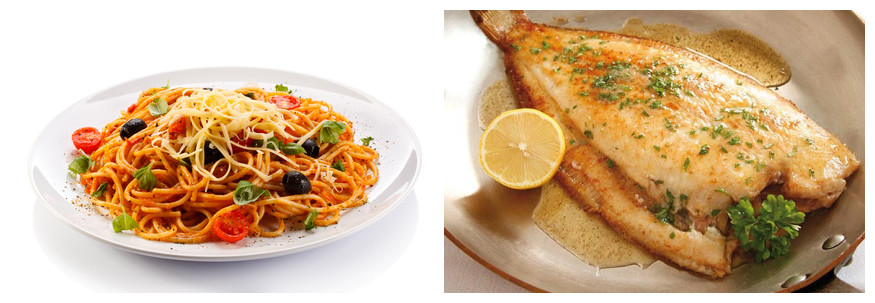The way in which runners fuel their bodies can be the difference between a new personal record and a lack luster race. Unfortunately, many athletes lean towards extreme actions such as consuming too much or too little, or not fueling their body with the right kind of foods at the right time. A look at what to eat before a half marathon revealed that nutrient-rich, portion-controlled meals can be the ticket to success when implemented properly in the week and days before a big race.
What to Eat Before a Half Marathon
As you begin tapering off your training during the last week before a race, there are certain steps to take to ensure your body is fueled properly and performing at optimal levels.
1. One Week Before
It is no secret that the consumption of high-carbohydrate foods is essential pre-race. This helps your body store glycogen and water to fuel your muscles as you run. Carbohydrate rich foods should make up approximately 70% of your diet, with nitrate rich foods accounting for the remaining 30% during this time. Nitrates convert into nitric oxide to increase blood flow and keep muscles oxygenated during the stress of long runs.
Plant foods can be a rich source of both healthy carbohydrates and nitrates. Consider a diet that consists of brown rice, bananas, Greek yogurt, whole wheat pasta, and oats for your race. Your water intake should remain normal, and urine output should be nearly clear and odorless, these are signs of adequate hydration. During this week, also avoid processed foods, refined sugars, and fast food as these can wreak digestive havoc and diminish your training efforts.

2. 48 Hours Before
Carb-loading is a fairly common approach to preparing for any race day. Runners will consume this meal – typically pasta – the night before a race in anticipation of the slow release of energy it will provide while they are running. Unfortunately, as anxiety sets in for the excitement of the next day, it also suppresses the digestion process. The end result is waking up with abdominal discomfort and bloat. To resolve this issue, runners should intake their carb-rich meal two nights before a race. Apart from pasta, foods like chicken, fish are all best choice, and you should avoid fat and fried foods.

3. One Night Before
The night before your race, eat early. It is imperative that your body have enough time to properly digest your meal. Avoid foods which may trigger digestive upset such as entrees which are spicy. Fuel your body with a low-fat, high-carb meal such as strawberries, sweet potatoes, brown rice, and chicken or salmon. These foods are easy to digest and have the added benefit of being low in fiber which will prevent cramping, bloating, and diarrhea.

4. Race Day Morning
Runners can become so consumed with what to eat before a half marathon that they skimp out on a proper breakfast. Portions should be small and consumed early so that digestion can occur, so runners should consume breakfast roughly three hours before race starts. Bananas are an optimal choice as they provide carbohydrates as well as potassium to keep leg muscles from cramping. Peanut butter can be enjoyed on whole grain toast or a bagel to provide protein and carbs for the run; and room temperature water help you stay hydrated.

What to Avoid Before a Half Marathon
There are several mistakes that even seasoned runners are prone to make when anticipate for the big day setting in. When mapping out what to eat before a half marathon, be sure to keep these tips on what to avoid in mind:
1. Do Not Drink Too Much Water
Water consumption should not change in the days before a race. Avoid the temptation to chug water thinking it will hydrate your body faster. Rapidly consuming water leads to decreased electrolytes and bloating. It may also dilute sodium levels, making it difficult for muscles and organs such as the heart and kidney to function properly.
2. Do Not Load Up on Fiber
Dark leafy greens, whole grains, and beans are packed with fiber. For runners who routinely maintain a healthy diet with these vegetables whether they are training or not, consumption is not a problem. However, individuals who stick to a less-than-optimal diet of processed or fat-filled foods will notice that the excess fiber will cause jitters, diarrhea, and gas.
3. Do Not Skip Breakfast
Numerous studies have shown that breakfast is the most important meal of the day. It is essential for maintaining blood sugar levels while power your body through the race. Mid-race fuel is not adequate in relation to the amount of calories you will be burning during a half marathon.
4. Do Not Try Something New
The week before a race is not the right time to try new foods. Your body should experience minimal dietary variances in order to prevent any digestive issues.
5. Do Not Consume Sports Drinks
Sports drinks are generally filled with sugar which can have negative effects on your run nutrition. You should plan out what to eat before a half marathon with basic beverages such as water or sugar/flavor-free electrolyte water. The goal is to prevent any digestive distress that will worsen while running.
